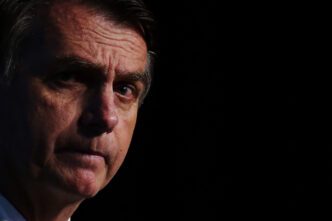Executive Summary
The Story So Far
Why This Matters
Who Thinks What?
Brazil’s Supreme Court has convicted former President Jair Bolsonaro of plotting to overthrow the nation’s democracy, sentencing him to more than 27 years in prison. The landmark decision, announced Thursday, marks a significant departure from Brazil’s historical tendency to defer justice in cases involving powerful figures, particularly those linked to its authoritarian past.
Bolsonaro was found to have conspired to revoke the 2022 election results, assassinate political rivals, and incite street chaos to retain power. This ruling by institutions previously intimidated by authoritarian regimes challenges decades of impunity for generals, coup-plotters, and torturers who often walked free under past amnesty laws.
International Reactions and US Engagement
The trial and its verdict have resonated globally, becoming a focal point for right-wing movements in the United States and Europe. These groups have framed the conviction as an instance of judicial overreach, drawing parallels to their own political narratives.
The connection between Brazilian Bolsonarismo and the American MAGA movement has been visibly evident, with a large US flag displayed at a pro-Bolsonaro rally in São Paulo. Donald Trump, hours after the verdict, expressed surprise, stating the trial was “very much like they tried to do with me, but they didn’t get away with it at all.”
The White House had previously imposed 50% tariffs on Brazilian imports in response to Bolsonaro’s prosecution, with President Trump labeling the case a “witch hunt” in a July letter to Brazilian authorities. White House Press Secretary Karoline Leavitt affirmed during a briefing that Trump would not hesitate to use US economic and military influence to protect free speech globally.
These developments were celebrated by Bolsonaro supporters in Brazil and abroad, who saw them as the culmination of efforts to garner support within President Trump’s inner circle. MAGA media, including the late conservative activist Charlie Kirk, had frequently highlighted Bolsonaro’s investigation and trial as a “harbinger of things to come” for the United States.
Kirk had consistently railed against the investigation, even hosting Bolsonaro at a Turning Points USA event in Florida in 2023. In a March broadcast, Kirk directly urged President Trump to impose tariffs and sanctions on Brazil for what he called the “reckless, immoral behavior” of its Supreme Court.
A Nation’s Reckoning
Despite the tariffs and rhetoric from the White House, the Brazilian court proceeded with its judgment. Justice Flávio Dino, in his opinion from the bench, reflected on the impact of granting amnesty to those involved in events like the January 6 US Capitol riot, stating, “There is this idea that amnesty, forgiveness, equals peace. But forgiveness was granted in the United States, and there is no peace.”
Bolsonaro’s conviction is deeply intertwined with Brazil’s prolonged struggle to confront its authoritarian past. For four decades, the nation has grappled with the legacy of a regime that ended in 1985 without trials for those responsible for torture, disappearances, and executions, largely due to a sweeping 1979 Amnesty Law.
Justice Cármen Lúcia characterized the Bolsonaro case as “an encounter between Brazil’s past, its present, and its future,” underscoring the necessity of addressing historical injustices. She emphasized that on the fortieth anniversary of its return to civilian rule, Brazil must demonstrate its capacity to defend its democracy.
The case against Bolsonaro, with its echoes of an embattled leader, a capital mob, and election fraud claims, resonated with observers in the United States. However, Brazil’s judiciary chose a decisive path, holding a former president accountable, which implicitly contrasts with the unresolved questions surrounding similar events in its northern counterpart.








